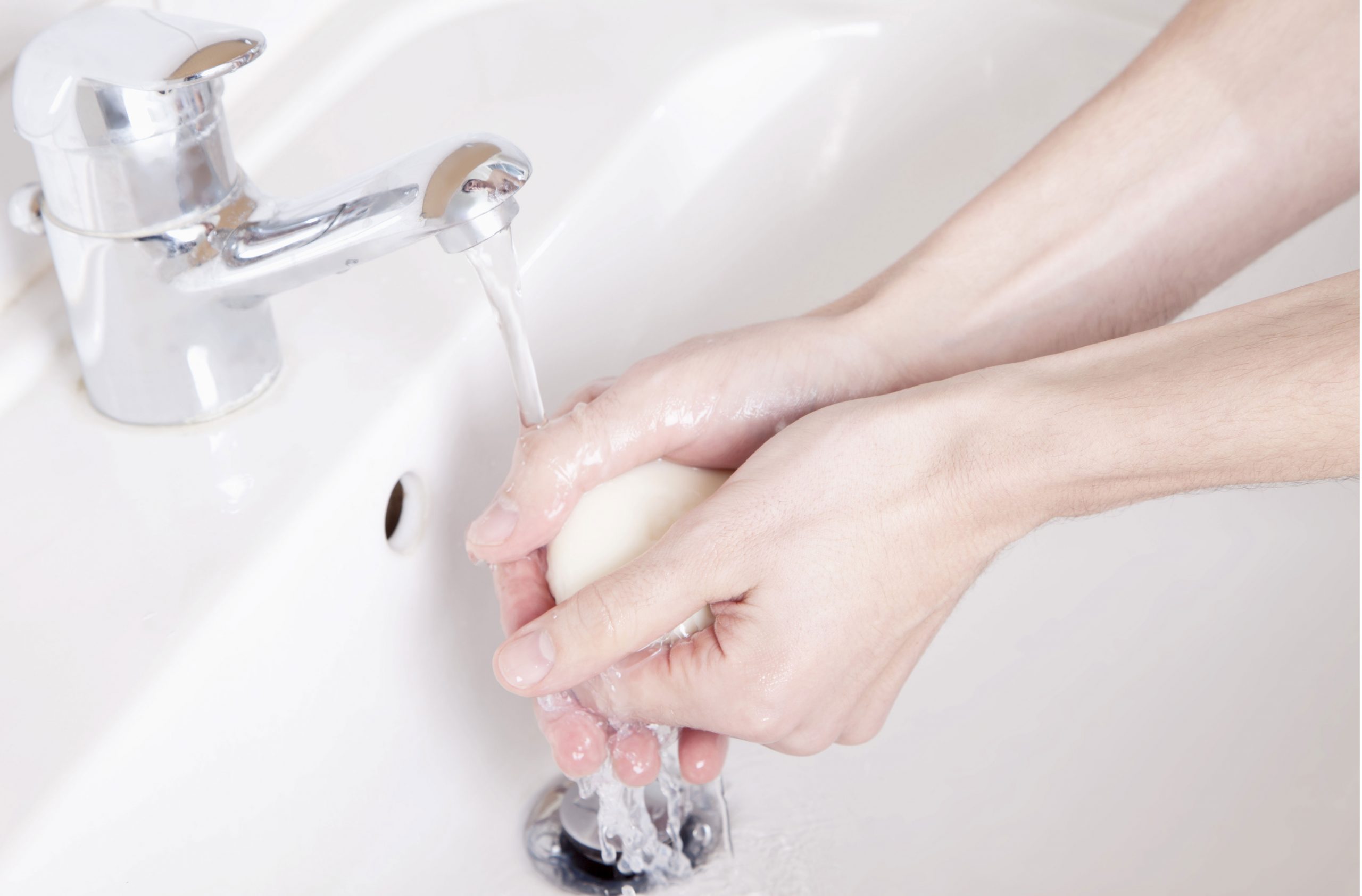Hand washing video: are you washing your hands properly?
Think you know how to wash your hands? Think again!


We all know how to wash our hands...don't we? It might seem like a pretty obvious task but actually, most of us are probably not doing it when we should be or as well as we should.
We should also all be washing our hands after using public transport, after using the toilet, after touching animals and after changing a nappy. Watch our video for the best and most thorough technique.
- Wet your hands with water, warm or cold
- Apply enough soap all over your hands and wrists
- Rub your hands palm to palm, then rub the back of each hand - and interlace the fingers each time to get in-between them
- Interlock your fingers and rub the back of your fingers
- Rub each thumb, then rub the tips of your fingers into your palms in circular motions
- Focus on your wrist by rubbing with the opposite hand
- You should wash your hands for as long as it takes to sing "Happy Birthday" twice (around 20 seconds).
- Rinse your hands with water, warm or cold
- Dry your hands thoroughly, ideally with a single-use towel
- Use your elbow or the single-use towel to turn off the taps if you can
But, can too much hand-washing be harmful? There is other scientific research that seems to suggest that those non-washers may actually be on to something. Official NHS guidelines may recommend hand washing for approximately 20 seconds but you might not need to wash your hands as frequently as you think, claim some doctors.
A study by Doctor Justin Sonnenburg and his wife Doctor Erica Sonnenburg at the Stanford School of Medicine in America has shown that over-cleaning eliminates good healthy bacteria from our guts.
Indeed, over-washing your hands can be almost as dangerous as not washing them at all and lead to health problems, as these bacteria are necessary for our general wellbeing and in order to produce healthy antibodies. The bacteria living in our gut perform necessary functions, Doctor Sonnenburg says, "Fending off pathogens, training our immune systems and the development of our tissues".
Humans pick up these good-gut bacteria from external colonies, one of the most important of which is during birth and infancy when we collect them from our families whilst we are growing.
Over centuries, the range of these bacteria in the human population has dropped due to use of antibiotics, less-frequent breastfeeding and caesarean sections.
Parenting advice, hot topics, best buys and family finance tips delivered straight to your inbox.
In order to reverse the decline of these bacteria, Doctor Sonnenburgh says we must tweak our culture to not always wash our hands after working in the garden or children getting dirty.
If all that germ-chat has left you feeling a little grimy then we've made a quick video to show you the right way to wash your hands, using guidelines from the NHS to make sure we've included all the important bits!

Grace Walsh is a health and wellbeing writer, working across the subjects of family, relationships, and LGBT topics, as well as sleep and mental health. A digital journalist with over six years experience as a writer and editor for UK publications, Grace is currently Health Editor for womanandhome.com and has also worked with Cosmopolitan, Red, The i Paper, GoodtoKnow, and more. After graduating from the University of Warwick, she started her career writing about the complexities of sex and relationships, before combining personal hobbies with professional and writing about fitness.